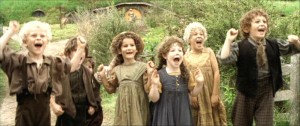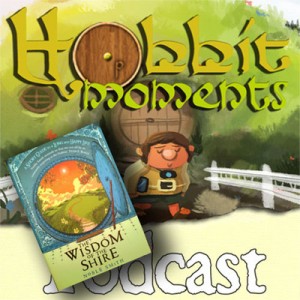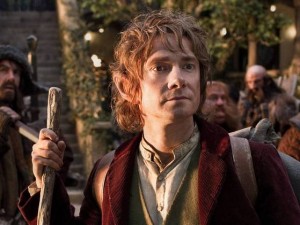There’s not a whole lot of information about Hobbit children in Tolkien’s works. In fact, the youngest Hobbit mentioned in The Lord of the Rings is Pippin (28 when The Fellowship of the Ring begins). But if you read between the lines and piece together the facts from Tolkien’s own life, you can learn a lot of interesting things about kids. Read an exclusive bonus chapter from my book The Wisdom of the Shire courtesy of Middle-earth News.
The Children of the Shire (Part 1)



